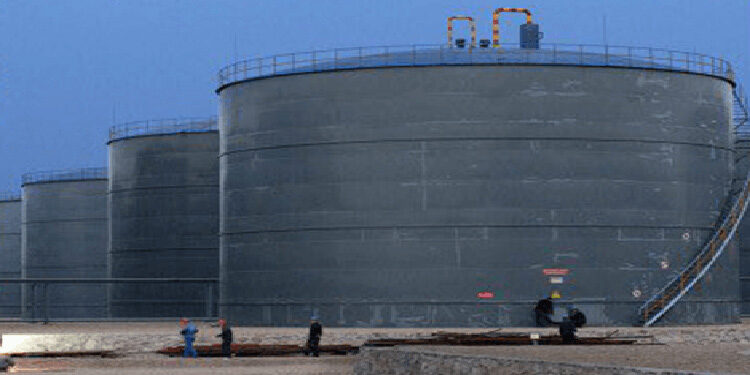Kenya is set to increase its oil products transport to Uganda once the trials are completed on the corresponding oil jet in Uganda and the facility is fully commissioned.
Kenya completed the Kisumu Oil Jetty a while ago and the first trial of the new facility successfully took place early this month, after 4.5 million litres of oil were landed in Entebbe on MV Kabaka Mutebi II.
The jetty, which was constructed by Mahathi Infra Uganda Limited has a storage capacity to handle 70 million of oil. This new terminal has ended lamentation by the Kenyan government of the prolonged delays in completing the construction of an oil jetty Ugandan side of Lake Victoria, which it said was compromising gains for Kenya’s efforts to maximize benefits from the Sh. 3 billion Kisumu port.
Kenya had been using tankers to offload the oil at Port Bell in Jinja through the MV Uhuru, which was rehabilitated at a cost of Sh. 50 million.
KPC has two major facilities in the Western region–the Eldoret depot and Kisumu depot with storage capacities of 48 and 45 million litres respectively, from where its transit market draws oil from.
Uganda remains Kenya’s top export market with 70 percent of imported oil products. The Kisumu Port refurbishment was a multimodal regional gateway that had been neglected for decades as transporters shifted to the use of the road.
Kenya Railways refurbished the MV Uhuru, a vessel that is being used for the transportation of goods between the Kisumu Port and Uganda harbour of Port Bell. Kenya Shipyards Limited, nearing completion of the second ship, MV Uhuru 2, which will be deployed in the lake soon.
The Lake Victoria port network also includes Mwanza, Musoma, and Bukoba in Tanzania and Entebbe and Port Bell in Uganda.
KPC expects to ride on both the port and jetty to increase its exports to regional markets, where it has lost about 30 percent of its business to Tanzania, which exports through the Central Corridor.
Uganda consumes about 7 million litres per day and is estimated to grow by about 5%, according to the Ministry of Energy and Mineral Development, which it attributes to economic growth in the major consuming sectors of logistics and transport, industry, and manufacturing.
Uganda imports all its fuel from the coastal neighbours Kenya and Tanzania with most of it being transported into the country by road in small quantities.
The equation is expected to change with the completion of a fuel handling complex at Bugiri-Bukasa village, off Entebbe Road at Kawuku about 35km south of Kampala by Mahathi. Some of the other partners in the company include Siginon Group of Kenya and Fortune Energy of Uganda.
The second oil tanker of an equal size to MT Kabaka Mutebi II) is under construction. These tankers will regularly take voyages between Mahathi depot and Kisumu oil jetty each substituting about 128 road tankers every time they make a voyage. “This project will be a game-changer for the country because we shall be able to transport fuels on Lake Victoria from Kisumu, Kenya to Kampala using oil tanker ships,” Capt Mike Mukula, the Chairman and one of the shareholders of Mahathi Infra Uganda Limited said in last year.
Mahathi Fuel Transport and Storage Depot will handle gasoline, kerosene, diesel, and Jet A1, to be delivered by ships. The fuel will be stored in the depot and conveyed by trucks to its final destinations in Uganda, Rwanda, Burundi, eastern DRC, and South Sudan, significantly cutting down delivery times as well.
This article was published by an editorial consultant and can be reached via githua.kihara@gmail.com





